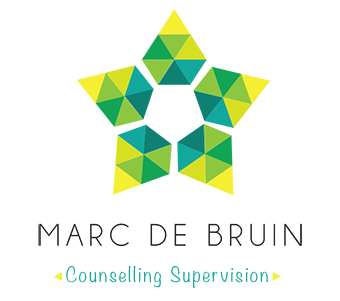The Effects of and Remedies for Impostor Syndrome in Counsellors and Psychotherapists
Impostor Syndrome (IS) is a psychological pattern in which individuals doubt their skills, talents, or accomplishments, and persistently fear being exposed as frauds. This experience is common among high-achieving professionals, and counsellors and psychotherapists are no exception (I definitely am not one of those exceptions, I can tell you!!). Despite extensive training and experience, many in the helping professions struggle with feelings of inadequacy and self-doubt. Understanding the effects of Impostor Syndrome and learning effective strategies to mitigate its impact is essential for maintaining professional confidence and providing quality care to clients.
Effects of Impostor Syndrome on Counsellors and Psychotherapists
Impostor Syndrome can manifest in various ways, impacting both the personal well-being of counsellors and psychotherapists and the quality of care they provide. Some common effects include:
- Chronic Self-Doubt: Despite having qualifications and positive feedback from clients, therapists may continually question their competence. This persistent self-doubt can lead to a sense of isolation and undermine confidence in their clinical skills. They might struggle to internalise their successes and attribute their achievements to external factors like luck or chance.
- Perfectionism and Overworking: Many counsellors experiencing Impostor Syndrome set impossibly high standards for themselves, believing that anything short of perfection proves their inadequacy. This can lead to overworking and burnout, as they push themselves to meet unrealistic expectations. The constant drive to achieve perfection often leads to exhaustion, making it harder to maintain an effective and sustainable practice.
- Fear of Failure: Impostor Syndrome instils a fear of being “found out” as incompetent, which may cause therapists to shy away from taking on complex cases or pursuing professional growth opportunities. This avoidance limits their ability to develop new skills, deepen their expertise, and expand their practice.
- Reduced Therapeutic Presence: When counsellors are preoccupied with their own self-doubts, it becomes difficult to maintain full presence with clients. They may become overly concerned with how they are perceived rather than focusing on the client’s experience. This reduced therapeutic presence can negatively impact the client-therapist relationship, which is central to effective therapy.
Remedies for Impostor Syndrome
While Impostor Syndrome can be challenging to overcome, there are several strategies that can help counsellors and psychotherapists manage its effects and reclaim their confidence.
- Engage in Regular Supervision: Supervision is an invaluable resource for countering Impostor Syndrome. Discussing your concerns with a supervisor (hopefully yours truly) can provide a safe space to explore feelings of inadequacy and receive feedback that grounds you in reality. Supervisors can help you recognise your strengths and successes while offering guidance on areas of growth, reducing self-doubt over time. And as I have been there before (and still am there, at times), we can exchange ideas and opinions, and at least join in the shared experience!
- Practice Self-Compassion: Cultivating self-compassion is so, so important for reducing the harsh self-criticism that often accompanies Impostor Syndrome!! Kristin Neff talks about this topic very powerfully. Recognise that perfection is not the goal of therapy, and mistakes or uncertainties are part of the learning process. Be kind to yourself, acknowledging that professional growth takes time and that even seasoned practitioners experience moments of doubt.
- Seek Peer Support: Connecting with other counsellors and psychotherapists who share similar experiences can help normalise feelings of inadequacy. Peer consultation groups provide an opportunity to discuss challenges, celebrate successes, and gain perspective from others in the field. Hearing from peers about their own struggles with Impostor Syndrome can be reassuring and offer validation.
- Acknowledge and Celebrate Successes: It is essential to recognise and celebrate your accomplishments, both big and small. Keeping a log of positive client outcomes, feedback, or professional achievements can serve as a reminder of your capabilities. Celebrating successes helps counterbalance the negative self-talk that fuels Impostor Syndrome.
- Embrace Lifelong Learning: Viewing therapy as a lifelong learning process can help reduce the pressure to have all the answers. Accepting that there is always more to learn allows therapists to approach their work with curiosity rather than fear of inadequacy. Continuing professional development can also reinforce your expertise and instil confidence in your abilities.
Takeway
Impostor Syndrome can significantly impact the professional confidence and well-being of counsellors and psychotherapists. However, through self-compassion, regular supervision, peer support, and a commitment to ongoing learning, it is possible to manage the effects of Impostor Syndrome and cultivate a greater sense of competence and fulfilment in your therapeutic practice.
If you would like to discuss this more in-depth, please contact me directly!
Here’s to your success.




Leave a Reply
Want to join the discussion?Feel free to contribute!